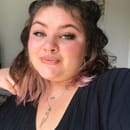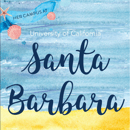It’s no secret that the average American high school education isn’t the most well-rounded. It’s unlikely that you spent a lot of time learning about feminist movements and history in your high school years. For many students, attending university is the first time they are exposed to a broader range of topics, and in turn, a more fully well-rounded education experience.
Now that we have more of a choice in our educational journey, we must educate ourselves on new and challenging topics. Feminism is for everyone: the social, political, and economic equality of the sexes. Discussions of feminism often bring up the conversation of intersectionality, a term coined by Kimberlé Crenshaw, as “a prism for seeing the way in which various forms of inequality often operate together and exacerbate each other.” Feminist studies courses offer essential discussions of the relation between all ends of inequality and how they interact.

I was lucky enough to have grown up and attended high school in a community where the LGBTQ+ community was widely accepted and supported. Therefore, I also felt I knew a fair amount about correct terminology to use and a basic understanding of different identities. But, I learned even more through this course and unteach myself some of the internal structures that society had impressed upon me over the years. Further, I know that not many people have been able to grow up in the same kind of environment as I was, and I saw how several of my peers were not educated in these topics and were able to grow from this class.
Whether the course knocks out a General Education requirement for you, or even if you just have an open slot for an elective course during your time at UCSB, I cannot recommend enough that you take a Feminist Studies course. These courses offer discussion of difficult topics in a safe space of the classroom and center themselves around facts, which can be hard to find nowadays with the influx of media. UCSB offers everything from Global Feminism, to Women of Color, to Gender Power.
Regardless of your personal identity, these courses can provide a better understanding of equality and intersectionality. If you’re a member of the community being taught about, feminist studies classes can empower you and serve as a reminder that you are not alone in your struggles. If you’re not, these classes can be an opportunity to further educate yourself on how to be the best ally possible and unlearn some of the patriarchal, intrinsic biases that we are taught. You will walk away from the course feeling educated and more open-minded.



